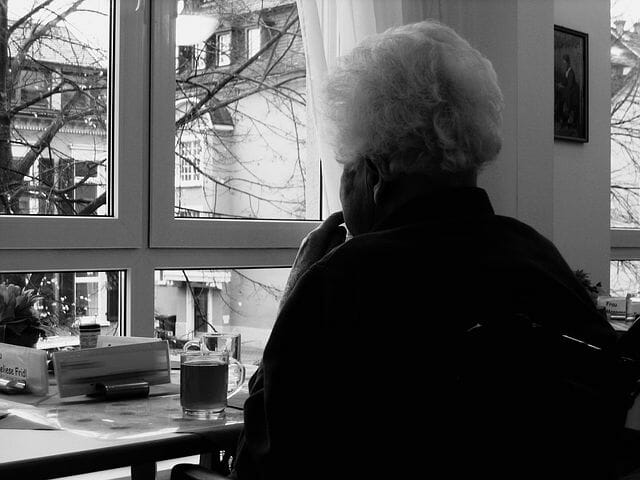(Editor’s note: My maternal grandmother was diagnosed with dementia. It was a challenging and difficult time, especially my mother to watch the deterioration. Her diagnosis haunts all the women in the family. Will anyone be next? If so, who? As families gather for the holidays, many families will likely be facing difficult decisions about what do with beloved family members I reached out to Alexandra Allred to write the following article on dementia exclusively for Uken Report.)
When Dorothy Wilson began researching dementia, she found a tremendous amount of information but not what she was looking for. She wanted reassurances. She wanted useful data that would enable her to take proactive steps against what she feared was onset dementia. What she wanted was to learn more about the disease from the perspective of the patient. There are countless articles, blogs, documentaries, movies and books about cancer, strokes, epilepsy, heart failure, Parkinson’s and Lou Gehrig’s disease, to name a few, but almost nothing from the perspective of dementia. “Everything I found,” Wilson said, “was about the caregivers and how hard it is for them. There is so much advice for the caregivers. What about me?”
Research provided to caregivers is vital and should continue to be ongoing as we learn more about both the disease and how to care for our patients, but so much more is needed for the person given the terrible diagnosis or for those who only suspect they might have the disease. “All I read about was how horribly I was going to screw over my family,” Wilson said. From finances to emotional strain and distress, all Wilson could focus on was how her children would become the victim of their own mother. It felt like a death sentence for her family.
The Destruction of Secrecy
With secrets comes inaction. Under the shroud of a dementia diagnosis, patients are less likely to share the medical diagnosis which leaves everyone vulnerable as the disease progresses. Perhaps the biggest mistake victims of dementia make (in their early diagnosis) is the feeling of ‘later.’ I will tell people later. I will take care of that later. I will address this later. Right now, however, I’m still okay …
The reality is people who suffer from cognitive impairment and dementia are unable to discern ‘later’ as the disease progresses. One extreme but useful example is that of Roger Curry. On November 7, 2015, Curry, then 76, was abandoned by his wife, Mary Curry, and son, Kevin Curry, in Heredford, England. The Curry family flew to England from Los Angeles with the sole purpose of dumping Roger Curry, progressed in his dementia, to be rid of any obligations for his personal care. Leaving him without any identification and Curry’s own inability to say anything more than his name, it was only luck and dogged investigatory determination by England’s officials that those responsible were found. Because friends and family knew so little about the Curry’s medical situation, this horrific story of a dumped American man could have gone unsolved. And because the Curry family, clearly, was not prepared for Roger’s care, extreme and unthinkable measures were taken.
What About Me?
If you suspect that you have oncoming dementia or a cognitive issue that is interfering with memory and/or day-to-day living, it is wise to check out a list of early signs and symptoms of Alzheimer’s and dementia. You should also:
- Make an appointment with your physician to talk about your concerns
- Do not go alone. The inclination of so many is to keep this frightening issue a secret from family. ‘Maybe its not a big deal. Maybe I’m wrong.’ The worst thing you can do for yourself and your family is to keep this a secret.
- Begin documenting issues of concern: lapses of memory; false alarms in which you were compelled to call for help; real alarms when EMS, firefighters or neighbors were called upon, etc.
- Tell a trusted neighbor of your concerns. Most likely it is the neighbor, not family, who will notice an open door, a missing car, or other odd behaviors well before family will ever know.
- Become active. If you are not already engaged in physical activity, you need to start. It does not have to be aggressive. Walking, dancing, swimming or group exercises (Silver Sneakers), etc, is highly recommended. Leading a physically active lifestyle has shown a significant impact on the well-being of people with dementia.
- Become more social. Whether you are playing Bingo, working in a soup kitchen or with your church to perform charitable acts, the important thing is to stay active among friends and in your community. People with a dementia diagnosis tend to disappear – fearful of embarrassing themselves or others. Research shows that staying socially (mentally) active had help delay onset dementia.
Help Me Help You
Share your dementia. As difficult as this concept may seem – share. Alzheimer’s is the sixth leading cause of death with no known cure. The numbers are rising yet there is still so little information out there because the topic is both unsettling and frightening. As Dorothy Wilson began her search for information about dementia from the perspective of the patient, she did find a handful of blogs that were more helpful to her than all the major studies and research data. One such example is Brian LeBlanc, who began with the basic question of ‘why me?’. His posts are so honest and open that, beyond being asked to serve as the keynote speaker at an international dementia convention, he has helped countless people to accept the diagnosis and become more proactive in their own futures.
With the possible diagnosis of dementia comes a heavy burden. You must be strong. You must be willing to help yourself and others to fight against this disease until a cure is found.
By sharing your story, you help everyone, and quite naturally begin documenting your own health. Think about setting up a blog with a family member or friend. Let this grace be your dignity and record keeper.







